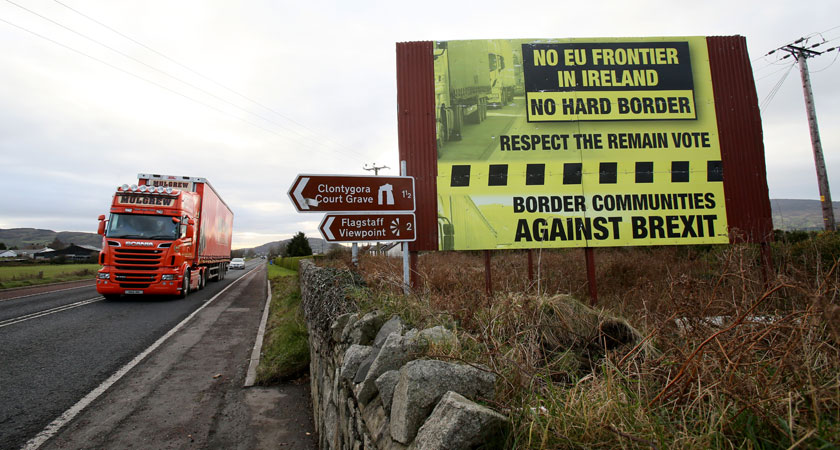People-smugglers are flying migrants to Dublin to then cross the Irish border and travel onto mainland Britain, it has been revealed.
A new BBC investigation found that illegal immigrants from camps in Calais and Dunkirk are paying at least £10,000 for fake EU passports before being flown from Paris to the Irish capital.
They then travel by car over the border into Northern Ireland, take a ferry from Belfast to Glasgow and drive the final leg to London to start a new life in Britain.
'The Irish Route'
A people-smuggler has described the so-called "Irish Route" as a "guaranteed way to get into the UK", because a passport check in Dublin is the only time any ID documents have to be presented.
One Iranian migrant who made the journey said it drew less police attention than entering the UK via London or Kent.
Hamid - not his real name - paid smugglers £10,000 before boarding a flight to Dublin with a genuine Greek passport that had been fraudulently obtained.
He told BBC South East: "When I got on the plane I was not worried. When we arrived in Dublin, I went through passport control - I passed through the checks and was able to leave.
"This route from Dublin is still fresh and the police do not focus on it as they do at Gatwick or Heathrow."
A people-smuggler, who gave his name as Azad, explained the logistics of the Irish Route to a BBC researcher who posed as a migrant.
"My guy who will be with them is going to book all the necessary steps," he said.
"They may have to stay in Dublin for a day. Then they'll go to the UK either by bus or by train."
'Once in Ireland, you're in'
Dave Wood, Former Director General of Immigration Enforcement, said the new smuggling route exploited weaknesses at Ireland's ports and airports.
He said: "If there are weaknesses at Irish ports or Irish airports, they will exploit them and use them, because once you're into Ireland, effectively you're into the UK.
"There's nothing stopping people once you're in Ireland travelling north to Northern Ireland and then to the wider UK."
The border between the Republic of Ireland and Northern Ireland is 310 miles long with around 275 crossing points and - road signs aside - zero physical infrastructure.
The issue of the Irish border has been a sticking point in the Brexit negotiations, with differences remaining between the UK and EU despite an agreement there should be no hard border.
In a statement, a Home Office spokesperson said: "The UK and Irish governments work closely on border security.
"Our existing joint programme of work with Ireland includes investment in border procedures, increased data sharing and use of passenger data."


